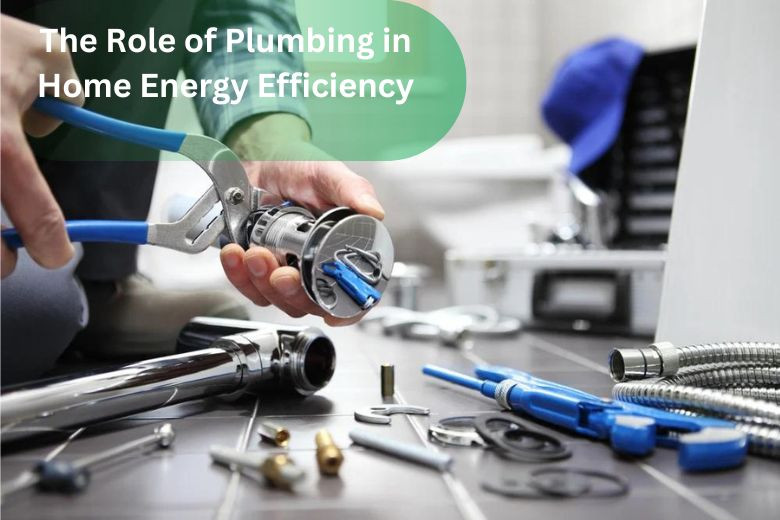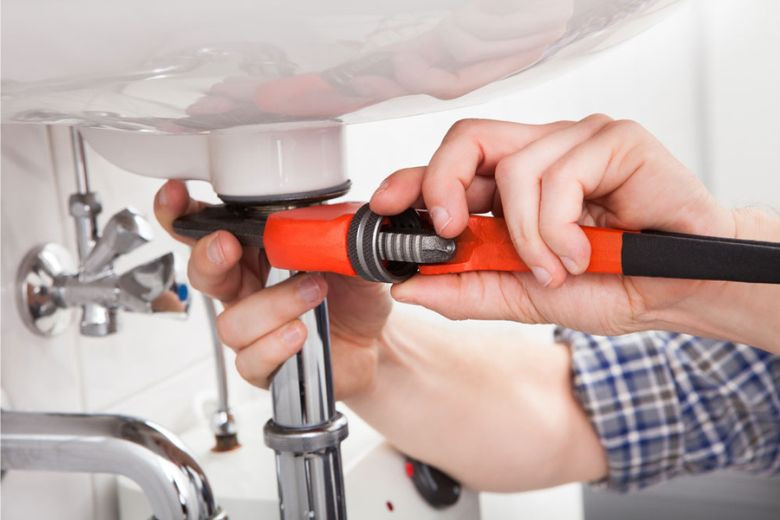The Role of Plumbing in Home Energy Efficiency
Posted on August 21, 2024 by Admin

If one were to think of home energy efficiency, one would perhaps immediately consider things such as insulation, windows, or maybe heating systems. One extremely important feature often overlooked is the role of plumbing. Proper plumbing helps more than just keep water safe in the home and removes wastes; it also has a large factor in your home's overall energy efficiency. By knowing the role that plumbing plays in home energy efficiency, you have the potential to lower your energy consumption, save money on utility bills, and contribute to a greener environment.
Efficient Water Heating Systems
Among the major ways plumbing impacts energy efficiency is through heating water. Older conventional water heaters can be pretty big users of energy, especially if they are older or poorly operating. Upgrading to a modern, high-efficiency water heater is one of such areas which will greatly help reduce energy consumption. For instance, tankless water heaters heat the water when it is required. Therefore, they do not need any storage tank, making a great contribution toward plumbing efficiency in offering hot water supply without reheating, as needed.
Insulating Pipes
A number of pipes are insulated properly to enhance energy efficiency within your home. These insulated pipes preserve the temperature of the water, all the way from the heater to the faucet, which reduces the amount of energy necessary to reheat cooled-down water traveling through the system. More particularly, this becomes very vital in colder states where huge heat losses might take place. You'll retain the heat from your pipes and reduce energy consumption by insulating them.
Fixing Leaks
Water leaks may appear to be a small problem, but they actually have a significant effect on both water and energy efficiency. These leaks cause the water heater to work harder in order to maintain the set temperature, increasing energy consumption in the process. Checking your plumbing system periodically for any possible leaks and repairing them is the way forward in ensuring energy efficiency. This proactive act gives meaning to the role of plumbing in preventing unwarranted usage of energy and maintaining a sustainable household

Low-Flow Fixtures
Another quick and easy fix for better energy performance in your home is low-flow fixtures. Since low-flow faucets, showerheads, and toilets use less water, they put less demand on your water heater, saving energy. These fixtures use significantly less water while maintaining adequate water pressure to show just how plumbing can help in conserving both water and energy.
Efficient Appliances
Virtually all modern appliances, such as dishwashers and clothes washers, have been designed with more energy efficiency than their older counterparts. These appliances will work at enhanced home energy efficiency capacities when hooked into an efficient plumbing system. Search for appliances bearing the Energy Star label; this marks appliances that meet or have gone beyond set energy efficiency guidelines. This is how plumbing, through the incorporation of efficient appliances, improves energy usage in your home.
Solar Water Heating
Solar water heating systems work wonders for maximum energy efficiency. They make use of solar panels to catch the energy of the sun in order to heat your water and reduce your dependence upon traditional sources of energy. With a bit expensive installation cost, it really pays off in the long term in your savings and the environment. This new approach lends illumination to the evolving role of plumbing in incorporating renewable energy solutions.
Must Read : How to Properly Clean and Maintain Your Sewer Lines
Conclusion
Plumbing in a house is not very noted, yet it makes all the difference in energy efficiency. Effective plumbing solutions integrating efficient water heaters, insulated pipes, low-flow fixtures, and solar water heating systems hold immense potential for reducing energy consumption and thereby the size of utility bills. By becoming more aware of the role of plumbing in your home, you will be better equipped to make informed decisions that will increase energy efficiency, contribute to sustainability, and provide comfort in your living space. Optimizing the role of plumbing will, therefore, go a long way in attaining these goals as the strive for energy-efficient homes heightens.
Faqs
-
1. How does plumbing impact home energy efficiency?
Plumbing impacts home energy efficiency through water-heating systems, pipe insulation, and usage of efficient fixtures and appliances. Proper plumbing reduces energy use by providing for efficient water heating, minimizing heat loss, and reducing water waste.
-
2. What are some of the benefits of upgrading from a conventional tank-style water heater to a tankless model?
Changing to a tankless water heater has a number of benefits concerning energy efficiency: water is only heated when required, no storage tank is involved, and it minimizes standby heat loss. This system will ensure that hot water is available only when required and significantly reduces total energy consumption.
-
3. Why is pipe insulation important for energy efficiency?
This helps retain the temperature of hot water from the heater all the way to the faucet, which in turn reduces the energy needed to reheat cooled-down water along the way. This is particularly important in cold climates where there is large heat loss.
-
4. What are some ways low-flow fixtures make buildings more energy-efficient?
Low-flow fixtures conserve water without reducing pressure. Using less water means less demand on the water heater, thereby saving water and energy. This makes them a simple and effective way to improve home energy efficiency.
-
5. How do efficient appliances factor into energy savings?
These high-efficient appliances include dishwashers and clothes washers that are designed to require less water and electricity compared to older versions of the appliances. When combined with a high-efficient plumbing infrastructure, they contribute to the enhancement of the overall energy efficiency of a home.
Recent Post
- Top Plumbing Service Providers in Arizona, USA
- Top 10 Electrician Service Providers in Alabama, USA
- Top 20 Roof Repair Service Providers in Alabama, USA
- The Role of Roof Insulation in Energy Efficiency: Tips and Tricks
- Understanding Roof Damage from Wildlife and How to Prevent It
- How to Choose the Best Roofing Contractor for Emergency Repairs
- Roofing Maintenance for Historic Homes: Preserving Architectural Integrity
- The Importance of Proper Attic Ventilation for Roof Health
- How to Identify and Prevent Roof Mold and Mildew
- The Best Practices for Removing Snow from Your Roof